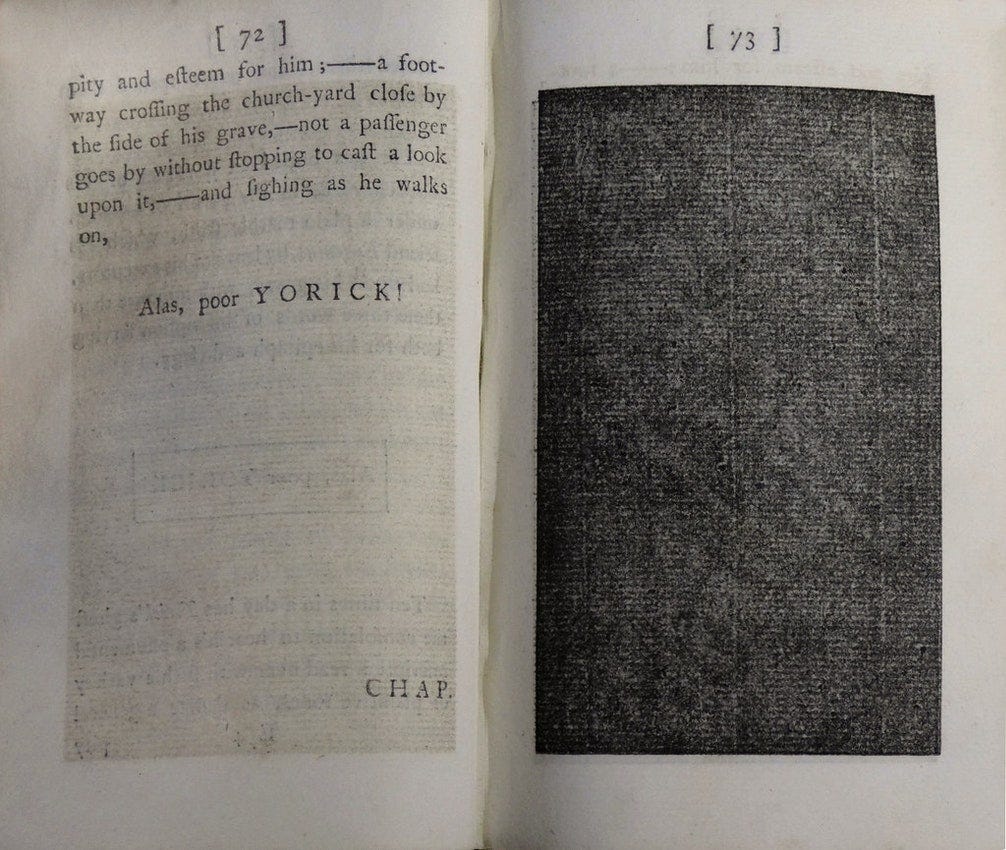Abandoned and failed projects, ca. 1998-2020: an incomplete list
A particular form of (auto)biography could be written by listing unrealised projects: the ideas that sparked, glowed, but which were never seen through to public articulation. The paths considered but not taken. Sean Ashton’s beguiling and addictive Living in a Land (MA BIBLIOTHEQUE, 2017) is a kind of autobiography told entirely through negative statements: a life implied, like an intaglio print, by the things not there. (‘I have never taken a phone call from an uncle I hardly know. I have never been handed a broken toy. I have never dieted or bulked up.’)
Failed or abandoned projects are related to, but different from, things not done: they are a few inches closer to realisation. And although none of the projects listed below were ever realised (although I probably need to think more about what that term means), each calls to mind intensely a particular time and place (number 2: the tea room of the Folger Shakespeare Library, Washington DC, the day before September 11th, 2001). Things never done exist everywhere in time; but things abandoned are hooked to a particular moment.
Here are some, but by no means all, of the instances I would chose if I was beginning to write an autobiography through projects abandoned or failed.
1. Founding of literary-cultural review magazine, Print. Submissions recruited; failed to raise money; abandoned. Neglected to communicate with contributors. [1998]
2. An edited collection of essays on early modern secrets. Stalled after 2 meetings. [2001]
3. An article on the circulation of Ben Jonson’s poetry. Written; rejected by Review of English Studies; put in a drawer somewhere and unseen since 2001. [2001]
4. Novel: campus comedy. Draft abandoned when I realised (but hadn’t at first) that it was a bit close to home. [2002]
5. Novel: murder story involving audio recording technology. Draft completed, agent interested, then dribbled away. [2005]
6. A collection of biographies of figures on the edge of Renaissance culture (Virginia Ferrar, John Taylor, Hugh Plat, William Jaggard, others). Outline sketched, then abandoned. [2007]
7. A non-fiction book about fatherhood. Pages of notes, quotes, then ran aground, partly because everyone seemed to be thinking of writing the same book (but also never did). [2009]
8. A monograph about all the services offered by early modern authors beyond writing (arithmetic, astrology, dancing lessons). Examples gathered. [2009]
9. Database of all books printed in English, in England, in 1609. Completed after 2-3 weeks; large spreadsheet; on completion, all sense of purpose evaporated. What is the point of this? Dormant file on desktop. [2010]
10. An article on the early modern sense of the future. Enthused for 2 pages. [2010]
11. A co-written article on archival failures. Initial email exchange. [2011]
12. A trade book about the Anglican community at Little Gidding in the 17 century. 20-page proposal rejected after lengthy back-and-forth of redrafts. [2011]
13. A radio programme about the religious community at Little Gidding in the 17 century. See previous. [2011]
14. A TV programme about the religious community at Little Gidding in the 17 century. See previous. [2011]
15. An article about individuals who refuse to offer up what they know, who keep what they know to themselves, especially (but not only) in contexts when others want to know it. Socrates, up until the very last day, refusing to write anything down. Aaron in Titus Andronicus. Iago in Othello. Demand me nothing; what you know, you know. / From this time forth I never will speak word. 3 pages of notes. [2014]
16. A co-written article on authorial intention. Notes. [2016]
17. A co-written article on early modern proof sheets. Examples gathered and bibliography compiled; then ground to a halt. [2017]
18. Introduction to the History of the Book: trade book proposal invited, written, then publisher declined. Insufficiently global. [2017]
19. Processional theatrical event in Oxfordshire village, with audience (not actors) processing through series of houses – in front door, out back door – as families within continue normal evenings, affecting not to notice the entering onlookers. Initial emails sent out, then nothing. [2017]
20. Podcast series about murder of a taxi driver in Oxford. Interviewed police officers, witnesses and colleagues; recorded draft pilot. Two years passed. Technically, pending, or about to migrate into something else. [2018]
21. Review of 2 books about paintings of readers for London Review of Books: major revisions requested by editors; enthusiasm leaked away; moved on. [2019]
22. Theseus in Midsummer Night’s Dream for local Amateur Dramatic Society: auditioned, got part, production cancelled due to COVID. [2020]
23. A survey of all extant copies of the black page in Laurence Sterne’s Tristram Shandy. Emails sent to all libraries holding copies but then discovered someone else had already done this. [2020]
.


I love (what I take to be) the embrace of failure as part of a broader picture of oneself. That it is not necessary to integrate our failures into a narrative of how they led to our successes, but that we are simply a collection of successes and failures, and other things between, and we can accept all those things as they (i.e. we) are.
This makes me feel so much better about my own abandoned projects. The "you are not alone" thing is a real comfort!